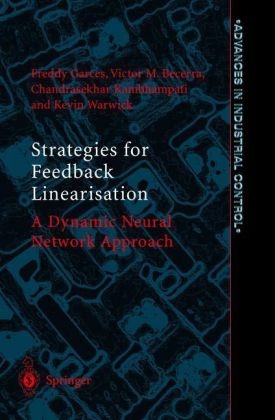En savoir plus
The last few decades have witnessed tremendous developments in nonlinear control theory. One of the most important of these is the model-based method of feedback linearisation in which a nonlinear system is transformed into a linear system by means of state feedback and nonlinear transformations. After feedback linearisation, a system can be dealt with by linear controller design. The extension of these techniques to include MIMO systems allows for the further simplification of controller design by decoupling the system. Strategies for Feedback Linearisation demonstrates this powerful technique in the light of research on neural networks which allow the identification of nonlinear models without the complicated and costly development of models based on physical laws. Dynamic or recurrent neural networks have inherent properties that allow them to approximate nonlinear dynamic systems. Strategies for the identification of nonlinear systems using such neural networks are presented in this monograph together with the use of such models for the design and application of input-output linearisation and decoupling methods. Strategies for Feedback Linearisation is written to serve academic and industrial researchers in non-linear control and system identification and practising control engineers interested in their application to real-world industrial systems. The reader will gain a balanced view of theoretical and practical issues: relevant mathematical proofs are provided as are case studies illustrating design and application issues.
Table des matières
Introduction
Fundamental Concepts
Introduction to Feedback Linearisation
Dynamic Neural Networks
Nonlinear System Approximation Using Dynamic Neural Networks
Feedback Linearisation Using Dynamic Neural Networks
Case Studies
Résumé
This book will sell because it presents interesting theoretical results to the academic control researcher and it shows those practising in the field of industrial control how to create better and cheaper models of the processes and systems with which they are concerned.

